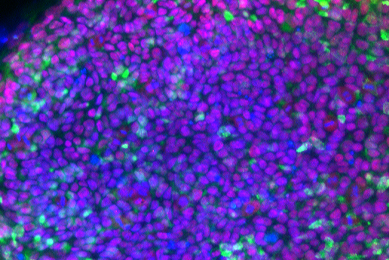Establishing Baseline Transcriptome Profiling of ATCC’s Human and Mouse Cell Lines
TAGC24
Washington, DC, United States
March 09, 2024Abstract
Cell lines are essential tools in biomedical research, serving as primary resources for numerous laboratory experiments. However, cell line contamination and inaccuracies in public datasets can adversely affect research. To address the need for authenticated cell lines with comprehensive data provenance, ATCC collaborated with QIAGEN® to establish ATCC Cell Line Land. This continually growing database contains baseline transcriptome data traceable to the highly utilized human and mouse cell lines in ATCC's repository. By providing this data, we aim to refine cell line selection, shifting from traditional methods to decisions informed by genotype-phenotype correlations. Such informed decisions can foster reproducible research, which can lead to the development of impactful therapeutics. To date, we've sequenced over 300 cell lines from kidney, blood, and lung tissues, encompassing primary, engineered, cancerous, and healthy cells. Our overarching objective is to establish research standards by offering traceable, standardized, and authenticated transcriptomic data. Such initiatives enhance the credibility and reproducibility of scientific endeavors.
In this study, we conducted a comparative analysis of the parent HEK-293 (ATCC CRL-1573) cell line and its derivatives, which play a crucial role in viral replication and therapeutic production. Through transcriptome analysis, we identified molecules exhibiting both general and specific profiles across these cell lines. Our pilot study on differential gene expression specifically highlighted distinct genes and pathways in the HEK-293.2sus (ATCC CRL-1573.3) cells cultivated in suspension as compared to the adherent parental HEK-293 cells (ATCC CRL-1573). Further analysis using IPA unveiled dysregulated pathways and pivotal upstream regulators that influence cellular phenotypes and gene expression shifts. Recognizing the significance of HEK cells in these applications, our study leverages RNAseq to shed light on unique gene expression patterns and pathways within this cell line panel, particularly under suspension conditions, offering valuable insights to optimize their use and improve therapeutic outcomes.
Download the poster to learn how transcriptome data traceable to authenticated cell lines can advance your research.
DownloadPresenter
Ajeet Singh, PhD
Senior Scientist, ATCC
Dr. Ajeet Singh is Senior Scientist at ATCC where he is focused on providing reference-grade whole transcriptome data that is authenticated, standard, and traceable to physical source materials available in ATCC’s biorepository. Prior to joining ATCC, Dr. Singh received his PhD in Agricultural Plant Pathology where he performed research focused on epidemiology and integrated management of plants pests and diseases. He then performed postdoctoral research at the National Institute of Environmental Health Sciences and subsequently worked as a Senior Staff Scientist at the National Cancer Institute. Dr. Singh has extensive experience in biomedical research with his research career expanding an array of interrelated disciplines exploring epigenetics, chromatin and gene expression in reproductive developmental toxicology, stem cell biology, and cancer.
Learn more about ATCC Cell Line Land
Discover ATCC's Cell Line Omics Data
Learn more about our standardized workflow for producing transcriptomics data from the authenticated cell lines within our collection.
MoreATCC Cell Line Land: Advancing Transcriptome Sequencing for Cell Lines
Read the white paper to learn how ATCC Cell Line Land can help researchers confidently contribute to the advancement of scientific knowledge in a reliable and transparent manner, ensuring the integrity of their data and findings.
More Blog
Blog
Advance Your Preclinical Research
Enable faster and more reliable results with authenticated biological materials backed by curated 'omics data.
More